Maggots can be an unwelcome sight in your garden. But don’t be alarmed — there are several steps you can take to manage and get rid of them quickly and effectively. In this guide, we’ll provide answers to some frequently asked questions about maggots, as well as tips on how to get rid of them in the garden.
What are Maggots?
Maggots are fly larvae, and they’re usually found near decaying organic matter.
They develop from eggs that female flies lay near or on food sources for their larvae. So if you have a thriving population of adult flies in your garden, chances are you’ll have a problem with maggots too.How to Identify Maggots in the Garden
Maggots are small, soft-bodied larvae that are usually white or cream colored. They have no legs or eyes and may appear in clusters near their food source.
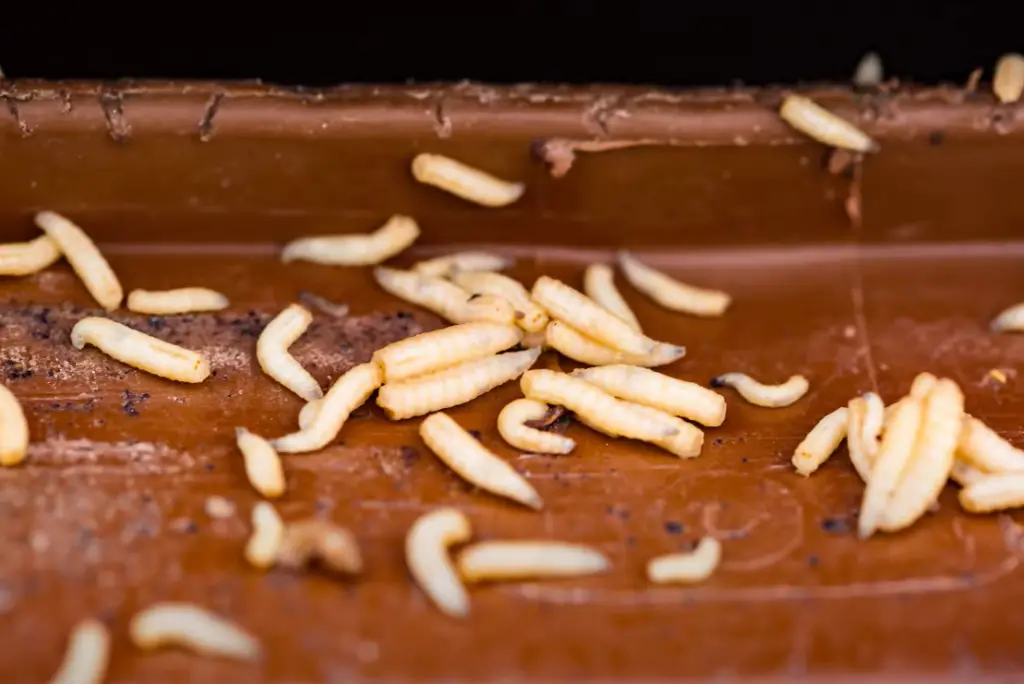
You can usually spot them near decaying organic matter such as fruits, vegetables, manure or even grass clippings.[1]
Are Maggots Dangerous?
Maggots are not dangerous in themselves, but they can cause damage to your plants and garden due to their feeding habits. They can also become a nuisance if they enter the home, as they may spread bacteria and disease. Therefore, it’s important to take steps to get rid of maggots in your garden before they become a bigger problem.
Common Types of Maggots
Housefly Maggot
The most common type of maggot is the housefly maggot. These are small, white larvae usually found near food scraps or decaying organic matter. Housefly maggots feed on a variety of materials, including plants and fruit, as well as other organic matter.
Apple Maggots
Apple maggots are large, cream colored larvae that feed on apples and other fruit. They are most commonly found in areas where apples are grown, and they can cause serious damage to fruit trees if not controlled.
Root Maggots
Root maggots are small, white larvae that feed on the roots of plants. These pests can cause significant damage to garden plants, and they’re most commonly found in areas with poor soil drainage or excessive moisture.
Seed Corn Maggots
Seed corn maggots are small, white larvae that feed on the leaves and stems of corn plants. These pests can cause significant damage to garden corn if not controlled.
How to Get Rid of Maggots Indoors
Sanitize the Area
The first step to getting rid of maggots indoors is to clean and sanitize the area. Remove any food or organic matter that may be attracting them, and vacuum up any larvae or eggs you find. Make sure to dispose of your vacuum bag in an outdoor trash can afterwards.
Try Salt
Salt is a natural deterrent for maggots, and it can be used to keep them away from your home. Sprinkle salt around any entry points or areas where they may be coming from, as well as on the ground near any organic matter that could attract them.
Pour boiling Water
Boiling water is an effective way to get rid of maggots.
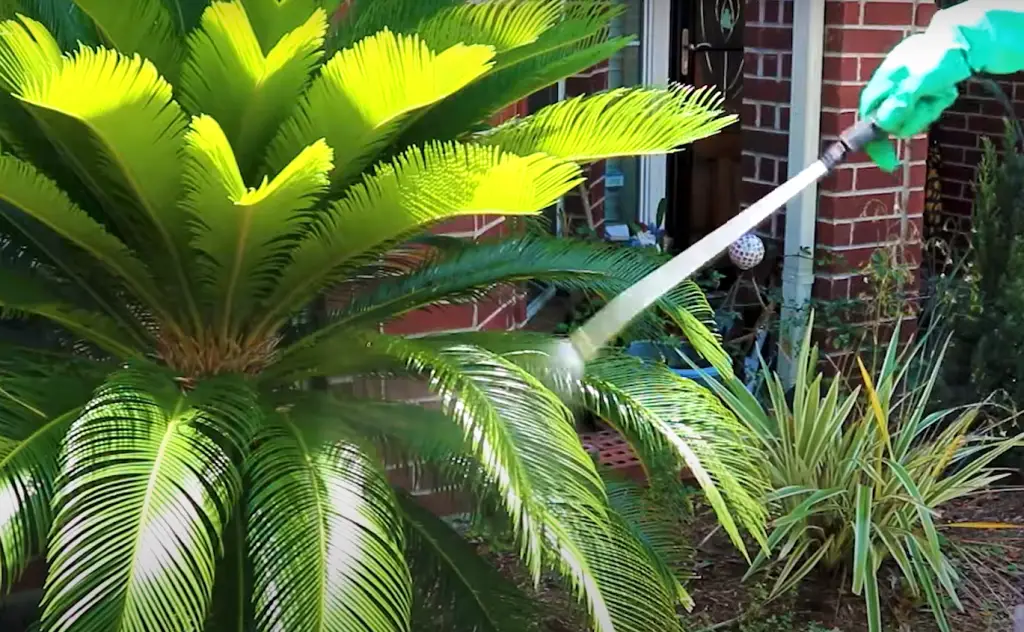
Pour the boiling water over any areas where you find maggots, and make sure to pour it into cracks or crevices that may be harboring them.[1]
Use Insecticide
If all else fails, you can use insecticide to get rid of maggots. Look for an insecticide that specifically targets maggots or flies, and make sure to follow the instructions on the label.
Sprinkle Diatomaceous Earth
Diatomaceous earth is a natural insecticide that can be used to control maggots. Sprinkle it around areas where you find them or any potential entry points, and make sure to reapply after rainfall.
Use White Vinegar
White vinegar is a natural deterrent for maggots, and it can be used to keep them away from your home. Soak a cloth in white vinegar and place it near areas where you find maggots, or pour it directly onto the larvae.
How to Get Rid of Maggots Outdoors
Sanitize Your Yard
To eliminate maggots from your outdoor space, start by thoroughly cleaning and sanitizing your yard. Get rid of any food or organic debris that could be luring them in, and carefully vacuum up any larvae or eggs you come across.
Rotate Crops
Rotating your crops can help limit the number of maggots in your garden. If you’re growing fruits or vegetables, make sure to plant a variety of different crops to prevent the larvae from settling in one area.
Plant More Tolerant Varieties
Some varieties of plants are more tolerant to maggots than others. Planting these types of plants in your garden can help keep the population of maggots under control. Herbs such as oregano, parsley, sage and rosemary are all resistant to maggots and make great additions to any garden.[1]
Install Trap Plants
Trap plants are varieties of flowers that attract and capture maggots. These flowers can be planted around your garden to serve as a natural barrier against the larvae. Some common trap plants include marigolds, sunflowers, daisies and dandelions.
Apply Beneficial Nematodes
Beneficial nematodes are small, worm-like organisms that prey on maggots and other pests. They can be purchased online or at your local garden supply store and are a great way to naturally control the population of maggots in your garden.
Sprinkle Diatomaceous Earth
Diatomaceous earth is a natural insecticide that can be used to control maggots. Sprinkle it around areas where you find them or any potential entry points, and make sure to reapply after rainfall.
Use Sticky Traps
Sticky traps are a great way to monitor and control the population of maggots in your garden.
Use Row Covers
Row covers are a great way to protect your garden from maggots.
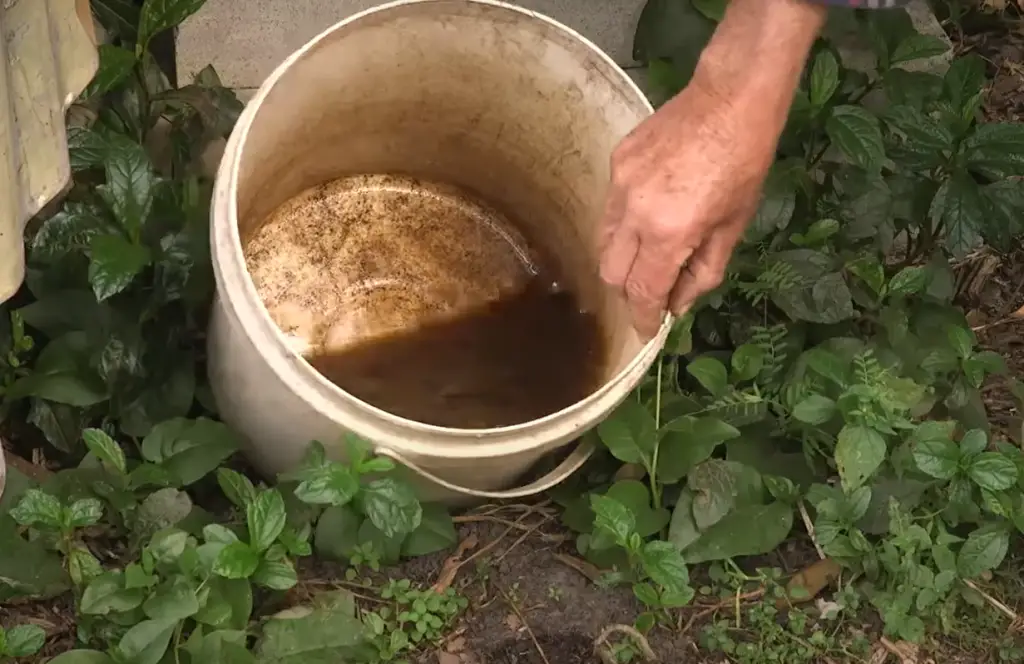
Covering your plants with row covers can prevent the larvae from getting to them, and they also help retain moisture in the soil.
How to Prevent Maggots?
The best way to prevent maggots from invading your home or garden is by taking proactive steps to keep them away. Here are a few tips for keeping maggots at bay:
- Keep your areas clean and free of food scraps, organic debris, and other attractants.
- Install screens on doors and windows, as well as any other potential entry points.
- Plant trap flowers around your garden to attract and capture maggots.
- Plant more tolerant varieties of plants in your garden, such as herbs like oregano, parsley, sage and rosemary.
- Apply beneficial nematodes or diatomaceous earth around the area to control the population of maggots.
- Use sticky traps near areas where you find maggots to monitor and control them.
- Cover your plants with row covers to keep the larvae from getting to them.
- Rotate crops in your garden to prevent the larvae from settling in one area.
- Make sure that soil is well drained and not overly moist, as this can attract maggots.
- Seal any cracks or crevices that may be harboring larvae.
- Consider using an insecticide to get rid of maggots if all else fails.[1]
By following these tips, you can help keep your home and garden free from maggots and other pests.
FAQ
What kills maggots immediately?
Boiling water is an effective way to get rid of maggots immediately. Pour the boiling water over any areas where you find maggots, and make sure to pour it into cracks or crevices that may be harboring them. You can also use salt, white vinegar, diatomaceous earth, insecticides or sticky traps to kill maggots.
Why do I have maggots in my garden?
Maggots often appear in gardens because of the abundance of food sources, such as decaying organic matter and fruits or vegetables. They can also be attracted to moist soil or standing water. To prevent them from appearing in your garden, make sure to keep the area clean and free of any potential attractants.
What will keep maggots away?
The best way to keep maggots away is by taking proactive steps to prevent them from entering your home or garden. Make sure to install screens on doors and windows, as well as any other potential entry points. Plant trap flowers around your garden to attract and capture maggots, and seal any cracks or crevices that may be harboring larvae.

Consider using an insecticide to get rid of maggots if all else fails. By following these tips, you can help keep your home and garden free from maggots and other pests.
Does salt stop maggots?
Yes, salt is an effective way to get rid of maggots. Sprinkle a generous amount of salt over areas where you find the larvae or eggs, and make sure to reapply after rainfall. You can also use boiling water, white vinegar, diatomaceous earth or insecticides to kill maggots.
Does vinegar keep maggots away?
Yes, white vinegar is an effective way to get rid of maggots. Simply pour the vinegar over any areas where you find the larvae or eggs, and make sure to reapply after rainfall. You can also use boiling water, salt, diatomaceous earth or insecticides to kill maggots.
What natural spray kills maggots?
Diatomaceous earth is a natural insecticide that can be used to control maggots. Sprinkle it around areas where you find them or any potential entry points, and make sure to reapply after rainfall. You can also use boiling water, salt, white vinegar or insecticides to kill maggots.
What is the best cleaner for maggots?
The best cleaner for maggots is boiling water. Pour the boiling water over any areas where you find maggots, and make sure to pour it into cracks or crevices that may be harboring them. You can also use salt, white vinegar, diatomaceous earth or insecticides to kill maggots.
Does baking soda keep maggots away?
No, baking soda is not an effective way to get rid of maggots. You may want to try using boiling water, salt, white vinegar, diatomaceous earth or insecticides instead.
Useful Video: How to Get Rid of Maggots (4 Easy Steps)
Conclusion
Maggots can be a nuisance in the garden, but there are plenty of ways to get rid of them. From beneficial nematodes and diatomaceous earth to sticky traps and row covers, you can use different methods to control the population of maggots in your garden. You should also take proactive steps to prevent them from entering your home or garden in the first place, such as cleaning up food scraps and organic debris, installing screens on doors and windows, planting trap flowers and rotating crops in your garden. With a bit of effort, you can keep your home and garden maggot-free!
References:
- https://www.planetnatural.com/maggots/





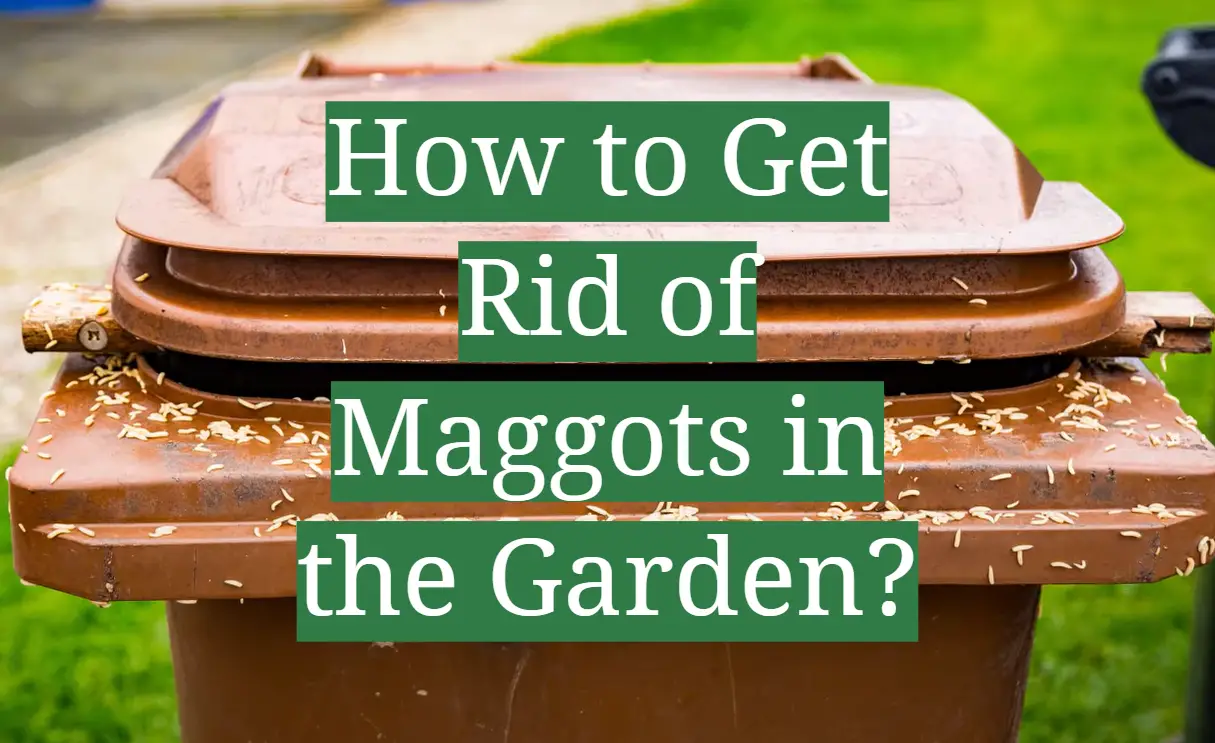
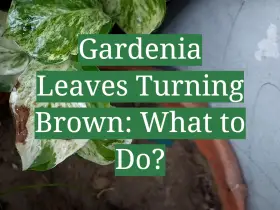
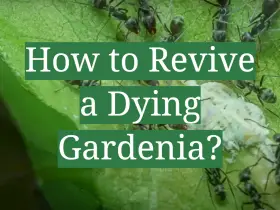

Leave a Reply
View Comments